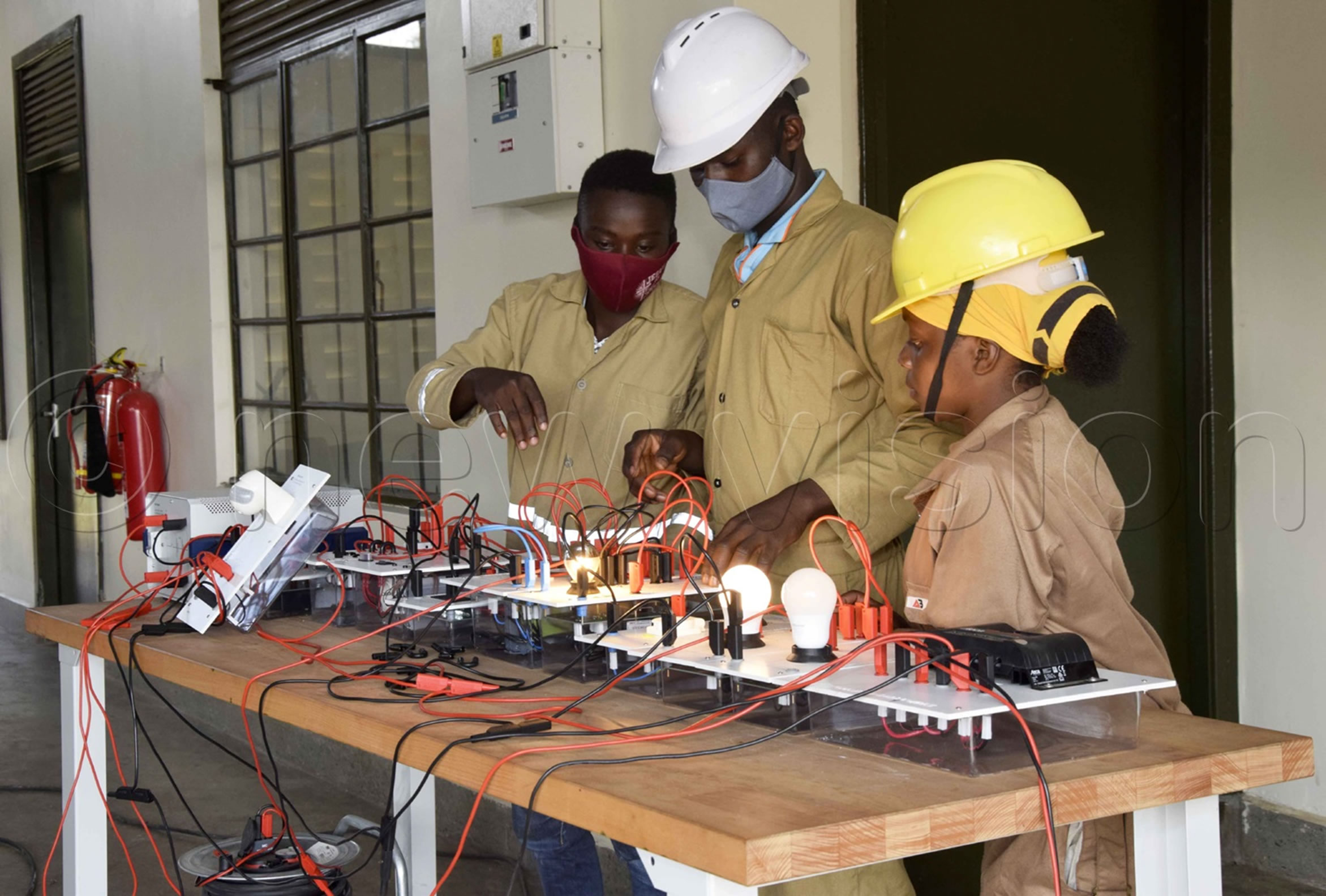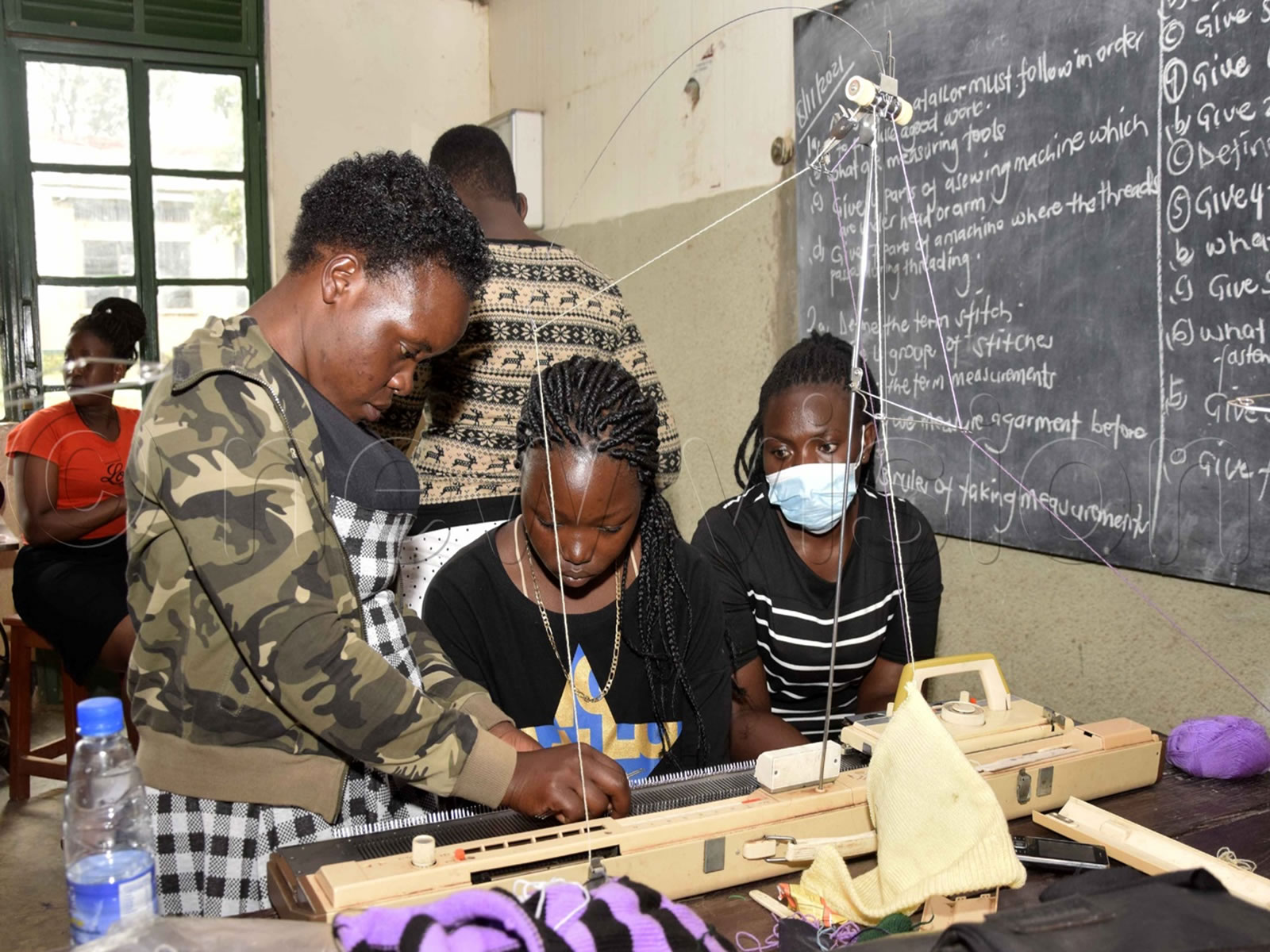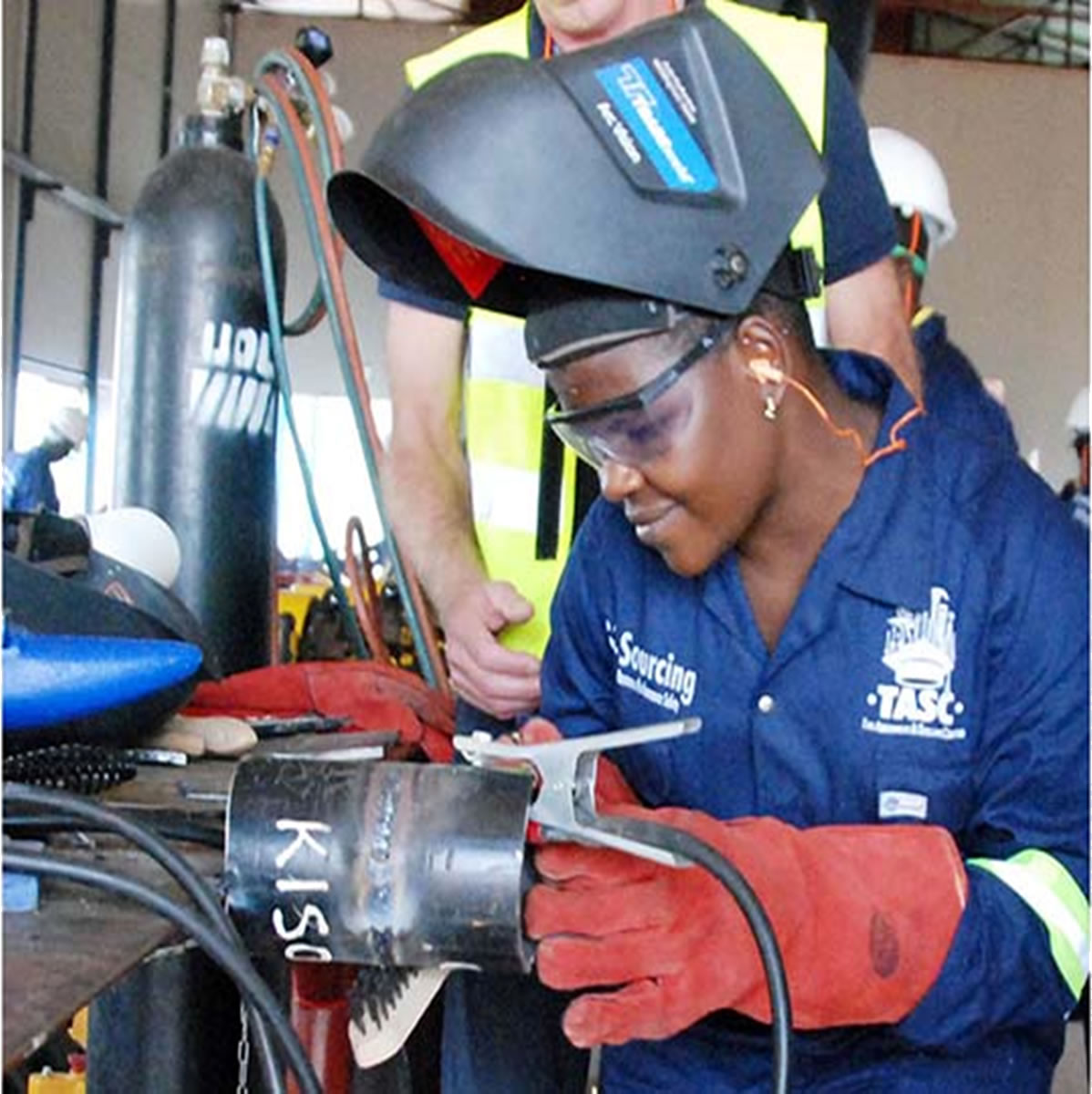The project titled, ‘The support to skilling Uganda’, aims at enhancing the employability of youths by making skills training more responsive to the needs of the labor market.
 Courses offered include tailoring, secretarial studies, business administration, marketing, electrical installation, automotive mechanics, and plumbing.
Courses offered include tailoring, secretarial studies, business administration, marketing, electrical installation, automotive mechanics, and plumbing.
The Education ministry with funding from the Kingdom of Belgium has commissioned three technical vocational education training institutions in the Albertine region.
The Kingdom of Belgium provided sh9.6b to fund the construction and rehabilitation of Uganda Technical College Kyema in Masindi district, Millennium Business School, and St Simon Peter’s Vocational Training Centre in Hoima.
 Tailoring Vocational Education
Tailoring Vocational Education
The facilities include dormitories, ICT classrooms, training workshops, and garages. Others are energy-efficient kitchens and water supply systems.
They have been fully equipped with all the necessary tools, equipment, and machinery. At Millennium Business School, the current enrolment is 210 students, 209 female, and one male.
Of these, 56 are pursuing formal courses while 154 are there for formal training.
Courses offered include tailoring, secretarial studies, business administration, marketing, electrical installation, automotive mechanics, and plumbing.

Welding Vocational Education Metal Works
The project titled, ‘The support to skilling Uganda’, aims at enhancing the employability of youths by making skills training more responsive to the needs of the labor market.
The project is also in the promotion of girl child education. State minister for sports Peter Ogwang, who represented the First Lady, Janet Museveni, described the project as an excellent representation of what education is.
“On behalf of the education ministry, I thank Belgium for this huge investment in technical and vocational education and training. The infrastructure and facilities constructed will provide a conducive environment for our learners. The tools, equipment, and furniture provided will enhance the quality of instruction,” Ogwang said.
The minister called on governance bodies and the management of the beneficiary institutions to ensure that the facilities are fully utilized and maintained.
He commended the quality of the project and the integrity of the contractors in ensuring value for money.
Vocational Courses
He added that private sector involvement in skills development was a key step in involving the employers in determining the skills that need to be supplied (by training institutions).
“Effective and relevant skills development systems are built on strong alliances with employers and the business sector. Such alliances involve joint efforts in policy development, planning, monitoring, and quality assurance,” Ogwang said.
Speaking at the commissioning, Enable resident representative Tom Vanneste, said that Belgium would continue to stand with the leaders and people of the Albertine region in their effort to develop their region.
“The new facilities will ensure that the institutions are more conducive for learning and accessible especially for girls. We are committed to partnering with you in addressing these challenges and in building on the multitude of opportunities that exist here,” Vanneste said.
The project provides similar infrastructures support to four other vocational training institutions namely Kasese Youth Polytechnic, St Joseph Technical Institute Virika in Fort Portal, Nakapiripiri Technical Institute, and St Daniel Comboni Polytechnic in Moroto.
Besides infrastructure development, the project builds the capacity of instructors to enable them to train better. It also provides vocational education scholarships to over 12,000 youth, women and girls.
Richard Alikira, the principal of St Simon Peter’s Vocational Training Centre, said these projects have helped the young people in the region to get the necessary skills that are needed by the oil companies around.
“The intervention of Enable has increased enrolment of trainees. It has improved the quality of teaching and learning hence better performance and increased employability of graduates above 60%. We no longer have a power blackout due to the installation of a standby generator. Activities can proceed even when power is off,” Alikira said.
Deborah Aguti, the principal of Millennium Business School, noted that they have managed to keep girls in school and acquire skills that make them employable.
“Some of our girls dropped out in Primary Seven and others Senior Four. The majority are single mothers but through the skills, they have managed to get jobs and look after their families,” Aguti said.



